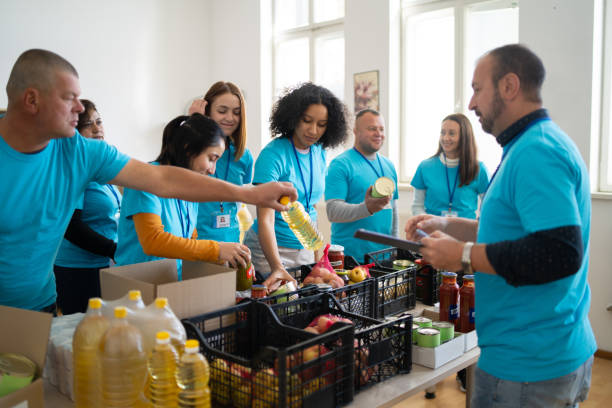In recent years, the role of non-governmental organizations (NGOs) in humanitarian intervention has become increasingly important. As the world’s population continues to grow and global conflicts worsen, it is clear that governments alone cannot adequately address the needs of those affected by war, natural disasters, and other forms of crisis. NGOs can provide valuable support to governments and local communities in addressing the needs of vulnerable populations and making sure that their rights are respected. In this blog post, we will explore the case for NGO involvement in humanitarian intervention by looking at a specific example of how NGOs can be effective in responding to a humanitarian crisis.
What is an NGO?

An NGO, or non-governmental organization, is a non-profit, voluntary organization that works to promote social or political causes. NGOs operate independently of any government, and often provide services that governments do not or cannot provide. They can be local, national, or international in scope. NGOs typically focus on issues related to human rights, poverty, health, education, conservation, the environment, and much more.
What are the different types of humanitarian interventions?
Humanitarian interventions come in many forms. These include the provision of emergency aid and relief, the protection of vulnerable populations, the facilitation of negotiations between warring parties, and the promotion of human rights. Emergency aid and relief are necessary for addressing humanitarian crises and helping victims of conflict or natural disasters. This type of intervention typically involves providing food, water, shelter, and medical assistance to those in need. Protection of vulnerable populations is another form of humanitarian intervention that involves ensuring that people are not targeted based on their race, gender, religion, or other factors. Negotiations between warring parties can also help to reduce violence, stabilize a region, and prevent further loss of life. Finally, promotion of human rights helps to ensure that individuals have access to basic rights and freedoms in order to live in dignity.
Why are NGOs well-suited for humanitarian intervention?

NGOs are well-suited for humanitarian intervention because they have access to important resources that enable them to provide essential aid and services to those in need. NGOs have the financial resources, personnel, and expertise to quickly assess the needs of vulnerable populations and deliver relief and support services. In addition, their local knowledge of the affected area and its inhabitants allows them to identify problems and respond quickly.
Another benefit of NGO involvement in humanitarian interventions is that they are often not tied to any particular government or military agenda. This allows them to act independently, which is crucial during times of conflict. Their neutrality can help foster dialogue between conflicting parties and facilitate peace processes.
NGOs are also well-positioned to deliver long-term recovery and development assistance to vulnerable populations. By implementing programs such as education, health, livelihoods and infrastructure, they can help rebuild communities, promote stability and reduce the likelihood of future conflicts.
In conclusion, NGOs are well-suited for humanitarian intervention due to their access to resources, local knowledge, neutrality, and ability to deliver long-term recovery and development assistance.
What are some potential drawbacks to NGO involvement in humanitarian intervention?
Despite the potential benefits of NGO involvement in humanitarian intervention, there are some potential drawbacks that should be considered. One of the most significant potential drawbacks is the lack of accountability and oversight of NGO activities. NGOs are not typically accountable to governments or other international organizations and may not have adequate systems in place to ensure that their activities adhere to international law or standards. Additionally, if an NGO does not have sufficient capacity or resources to address a situation, it may not be able to effectively provide the necessary assistance.
There is also a risk that NGOs can become politicized and manipulated by external actors for their own gain. For example, certain NGOs may be used to advance the interests of powerful states or to discredit the actions of less powerful states. This can be particularly true when NGOs are funded by foreign governments or organizations. There is also a risk of the “aid industry” being used as a way to make money or boost reputations at the expense of those they are supposed to help.
Finally, NGOs may inadvertently prolong conflicts by intervening in situations where there is no long-term solution or peace plan in place. Without proper coordination with local governments or other international organizations, NGOs can exacerbate tensions by entering into a conflict zone and providing aid that could upset existing power dynamics.

